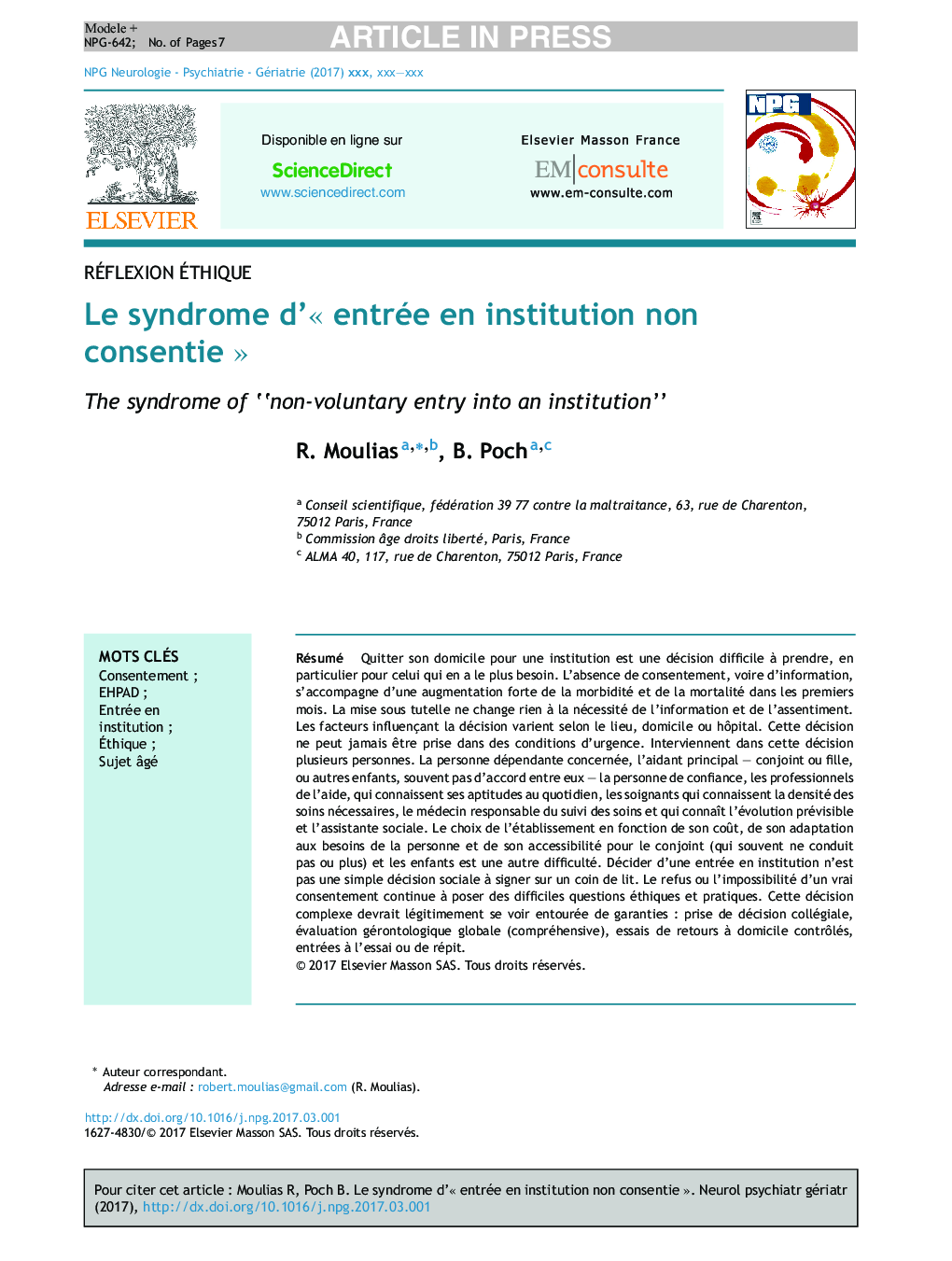| Article ID | Journal | Published Year | Pages | File Type |
|---|---|---|---|---|
| 8732723 | NPG Neurologie - Psychiatrie - Gériatrie | 2017 | 7 Pages |
Abstract
Leaving home, for a nursing home is a hard decision, especially for the person who most needs these new living conditions. Absence of the person's consent, and in some instances lack of information, is accompanied by a marked increase in morbidity and mortality in the first months. To be under legal guardianship does not alter the need to provide information and obtain consent of the patient. Factors affecting decision vary according to where it is reached in the community or in hospital. This decision cannot be taken in emergency situations. Many people have a part in this decision, among whom the dependent person, the familial caregiver (husband, wife, daughter or other children, often not in agreement), the “person of trust”, the professional caregivers who know the person's abilities and limitations, the family practitioner who knows the foreseeable evolution and the social worker. The choice of the nursing home is a further difficulty, which may relate to its cost, its ability to take into account the needs of the person, accessibility for the spouse who may no longer be driving or for the children. This decision is not a straightforward social decision reached at the bedside. Refusal or inability to provide informed consent raise difficult ethical and practical questions. This decision should be accompanied by safeguards - collegiate decision, a comprehensive gerontological examination, tentative supervised returns home, entry on trial, or respite periods in the facility.
Related Topics
Health Sciences
Medicine and Dentistry
Geriatrics and Gerontology
Authors
R. Moulias, B. Poch,
